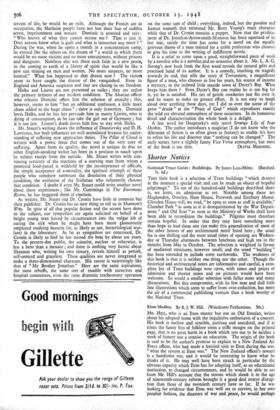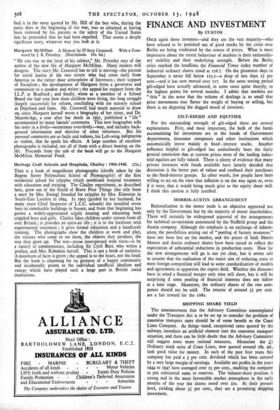MR. HILL, who is an Eton master but not an
Old Etonian, writes about his adopted home with the inquisitive enthusiasm of a convert. His book is mellow and sensible, partisan and anecdotal, and if at times the funny bits of folklore seem a trifle meagre on the printed page, that is no great harm in a book which sets out to be neither a work of history nor a treatise on education. The origin of the book is said to be the author's promise to explain to a. New Zealand Air Force officer, who had made a hurried visit to Eton during the war, "what the system at Eton was." The New Zealand officer's reward is a handsome one, and it would be interesting to know what he thinks of it. He may well have been struck in particular by the obviouscapacity which Eton has for adapting itself, as an educational institution, to changed circumstances, and he would be able to see from Mr. Hill's account that the storms which shook it in the age of nineteenth-century reform brought it a good deal nearer disrup- tion than those of the twentieth century have so far. If he was looking for evidence that Eton was well set to survive, in her own peculiar fashion, the disasters of war and peace, he would perhaps
find it in the story quoted by Mr. Hill of the boy who, during the panic days at the beginning of the war, was so ashamed at having been removed by his parents to the safety of the United States that he pretended that he had been expelled. That seems a deeply significant story, whatever way you look at it.



































 Previous page
Previous page